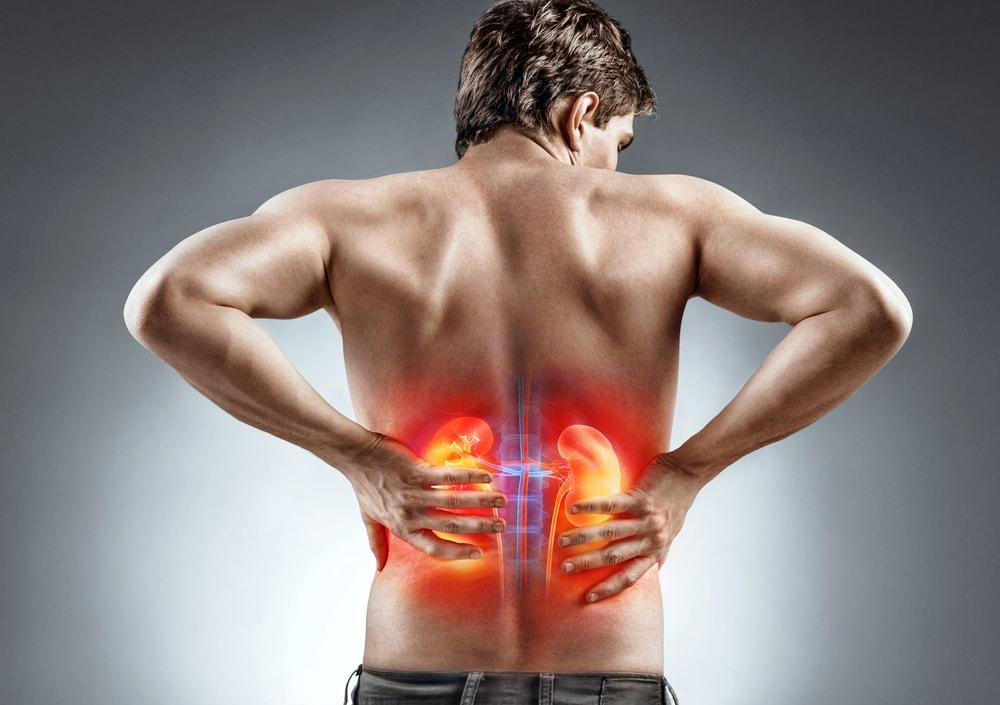Chronic kidney disease is also known as chronic kidney failure is the gradual loss of kidney functions due to various reasons. Kidneys are a pair of bean-shaped organs situated more posteriorly on both sides of the spine just below the ribcage. They are one of the most important organs in the body that helps in maintaining blood pressure, electrolytes and water balance, excretion of toxins or drugs, reabsorption of nutrients, and maintaining the pH of the body.

RISK FACTORS ASSOCIATED
CKD or chronic kidney disease is more commonly seen in people above 65 years of age and has a slightly higher occurrence in women. The two most frequently seen risk factors associated with CKD are uncontrolled diabetes mellitus and hypertension. The other factors associated are
- Race: African American, Hispanics, and American Indian populations have a higher risk
- Smoking or alcohol consumption
- Obesity
- Kidney infection or inflammation like glomerulonephritis
- Cardiovascular disease or people with a history of heart problems
- Prolonged backlog of urine like enlarged prostate, kidney stones
- Structural abnormalities of the kidney like horseshoe kidney, polycystic kidneys, etc
- Family history of kidney disease
- Babies of premature births have a higher risk of CKD later in life
- Long-term use of certain drugs harmful to the kidney like pain killers, NSAIDs
SIGNS & SYMPTOMS
Depending on the severity and duration of loss of kidney function, a person can present with a number of symptoms or signs such as
- Symptoms associated with diabetes mellitus like elevated sugar levels, increased risk of infections, etc
- Nausea or vomiting due to accumulation of toxins
- Persistent fatigue or tiredness
- Loss of appetite
- Generalized edema or swelling of face, arms, and legs
- Shortness of breath due to accumulation of fluid in the lung or around the heart
- Symptoms of anemia like dizziness increased sensitivity to cold, etc due to reduced production of erythropoietin
- Increased blood pressure
- Altered bladder habits like reduced urine output or increased urination at night, change in color of urine due to blood or proteins, pressure on passing urine, etc
- Altered mental sharpness due to accumulation of toxins
- Muscle cramps or twitches due to abnormalities in electrolytes
- Reduced calcium levels result in an increased risk of fractures
- Sexual dysfunction in both men and women
- Persistent itchy dry skin
- Sleep disturbances
STAGES OF CHRONIC KIDNEY DISEASE
Signs and symptoms of chronic kidney disease are very nonspecific and may mimic symptoms of other illnesses and also usually only present at advanced irreversible stages of kidney damage. The different stages of CKD are classified based on the loss of filtration capacity (GFR) of the kidney
- Stage I(GFR>90): very mild kidney damage, generally no significant symptoms present
- Stage II(GFR 60-89): usually no symptoms but may rarely have symptoms of anemia or increased blood pressure
- Stage III(GFR 30-59): have symptoms of generalized swelling, anemia, tiredness, electrolyte disturbances
- Stage IV(GFR 15-29): severe kidney damage resulting in symptoms that require immediate treatment
- Stage V(GFR <15>
